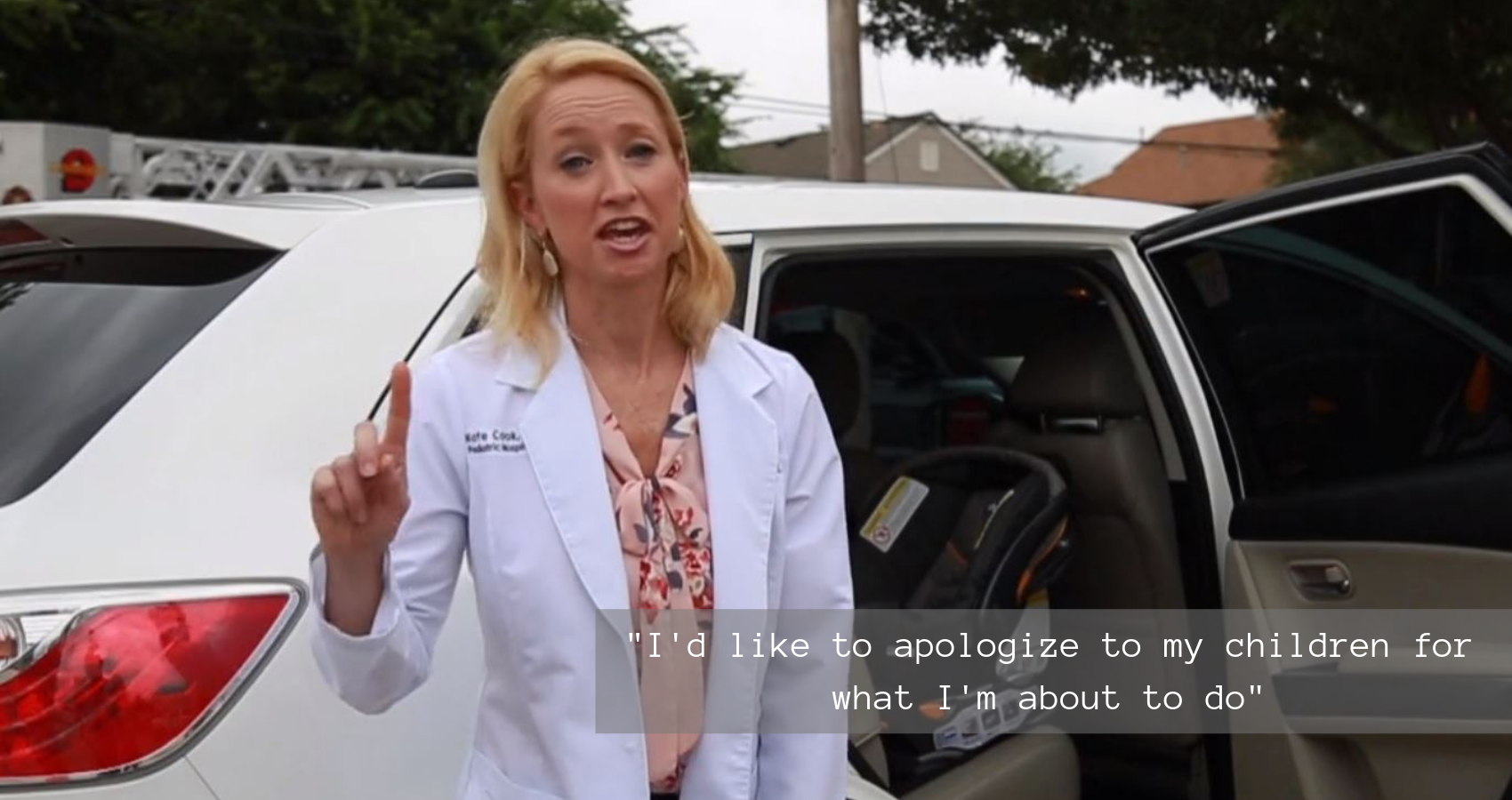A doctor has released a hilarious video rapping about the latest recommendations for car seat safety. Her goal is to grab parents' attention to let them know about the current standards.
Most parents look forward to the day they can turn their child from rear-facing in their car seat to front-facing. Little ones tend to be much fussier when facing backward, and many suffer from car sickness. Driving babies can be a nightmare in some families, and finally being able to turn a toddler around can fix things. Except, it turns out to be much less safe.
READ MORE: New Law Could Have Kids In Car Seats For Much Longer
Dr. Kate Cook is reaching out to parents about this important safety concern with a funny remake of Sir Mix A Lot's Baby Got Back. In her version, "Babies Face Back" is the chorus.
[EMBED_VIMEO]https://vimeo.com/352735067[/EMBED_VIMEO]
The American Academy of Pediatrics's recommendations that Dr. Cook wants to share are as follows:
- Babies and toddlers should face backward in their car seats as long as possible until they exceed either the height or weight limit listed in their car seat's manual
- After facing forward, toddlers and young children should remain in their harness seat for as long as possible until they exceed the height or weight limit listed in their car seat's manual.
- When children grow out of their harness seat, they should use a booster seat until they grow tall enough for a seat belt to hit their chest and shoulder at the proper height. Some children will not reach this height until they are as old as eleven or twelve.
The difference between rear-facing and front-facing is a matter of safety. Previously, the AAP suggested the switch at age two, but they have changed this recommendation to as long as possible.
Rear-facing seats better protect the delicate bones in the head, neck, and spine. Babies who face backward are 70% safer than those who face forward in the event of a crash because their position allows the seat to absorb more force.
READ NEXT: Babies Shouldn't Sleep In Car Seats When Not Traveling

